
Longread
"The North sea is a free resource, it belongs to everyone – but we're approaching its limits"
Wind farms, fishing grounds and nature conservation compete for space in the North Sea, and there are often clashes between these interests. Wageningen Marine Research examines the ecological impact of economic activities, and as such it has a very particular role to play in the North Sea transition. “We would never say that something shouldn’t be allowed. Those decisions are up to policy makers.”
Everybody wants a piece of the North Sea. Fishers, the shipping industry, the energy sector, the Ministry of Defence, dredgers and conservationists all jostle in pursuit of their own interests in the North Sea – and that means they can get in each other's way. The 2020 North Sea Agreement, which brings together a variety of stakeholders, is supposed to manage all these clashing interests and tensions. There’s also the North Sea Consultation, which is the body designed to implement any decisions – and right now the changes in the pipeline are so significant that people are referring to this as the North Sea Transition. This transition can be further divided into three major domains: the energy transition, the food transition and the nature transition.
The concept of ‘shared use’ is key to the North Sea transition, but that isn't easy to achieve in practice.
Mare liberum
“For a long time, the prevailing concept was that of mare liberum: the idea that the sea is a free resource and belongs to everyone,” says Josien Steenbergen, programme manager Offshore Wind Energy at Wageningen Marine Research. “We’re now reaching the limits of that principle. We have to start weighing up different interests, and reconciling them. One example would be when the interests of traditional users like fishers clash with those of relative ‘newcomers’ such as energy companies that want to build offshore wind farms.”
The concept of ‘shared use’ is key to the North Sea transition, but right now that isn’t easy to achieve in practice in one of the world's busiest seas. How do you implement spatial planning in a sea that is traversed by hundreds of thousands of ships every year and where every square meter is claimed by someone? Or to be more precise, every cubic metre. “The sea isn’t a flat surface: it’s a 3D world,” says Steenbergen. “You can go right down into its depths, and that makes the situation even more complex. Furthermore, the sea also isn’t a uniform container of water. It’s a living system, an ecosystem.”
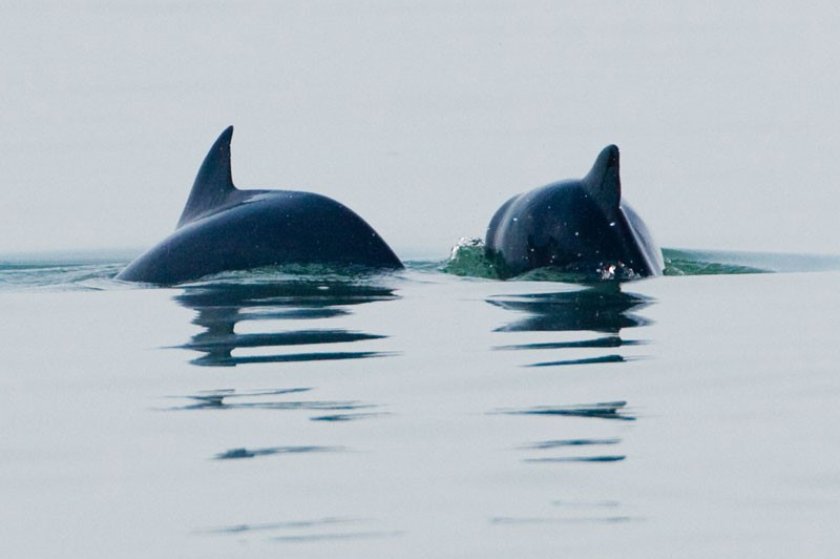
This ecological dimension is precisely what Wageningen Marine Research is bringing to the debate on the North Sea transition. As an independent research institute, Wageningen Marine Research conducts ecological research on behalf of various government agencies and public bodies, companies and NGOs, including Rijkswaterstaat, the Netherlands Organisation for Applied Scientific Research (TNO), and the Ministry of Agriculture, Nature and Food Quality. “There are tensions between different economic activities, such as fishing and energy production,” says Steenbergen. “But above all, there is a tension between economics and ecology. Through our scientific research, we’re providing a clear picture of the ecological impact of all those economic activities.”
The North sea isn’t a uniform container of water, it’s a living ecosystem.
Ecological impact
Offshore wind farms are a good example of that tension between different economic activities and between economics and ecology. The North Sea is regarded as a particularly important site for wind farms as part of our efforts to achieve climate targets. Some refer to it as a ‘Green Powerhouse’ and speak of ‘giant power sockets’ at sea. This is partly because people tend to assume there’s more than enough space out at sea.
Rules for fisheries
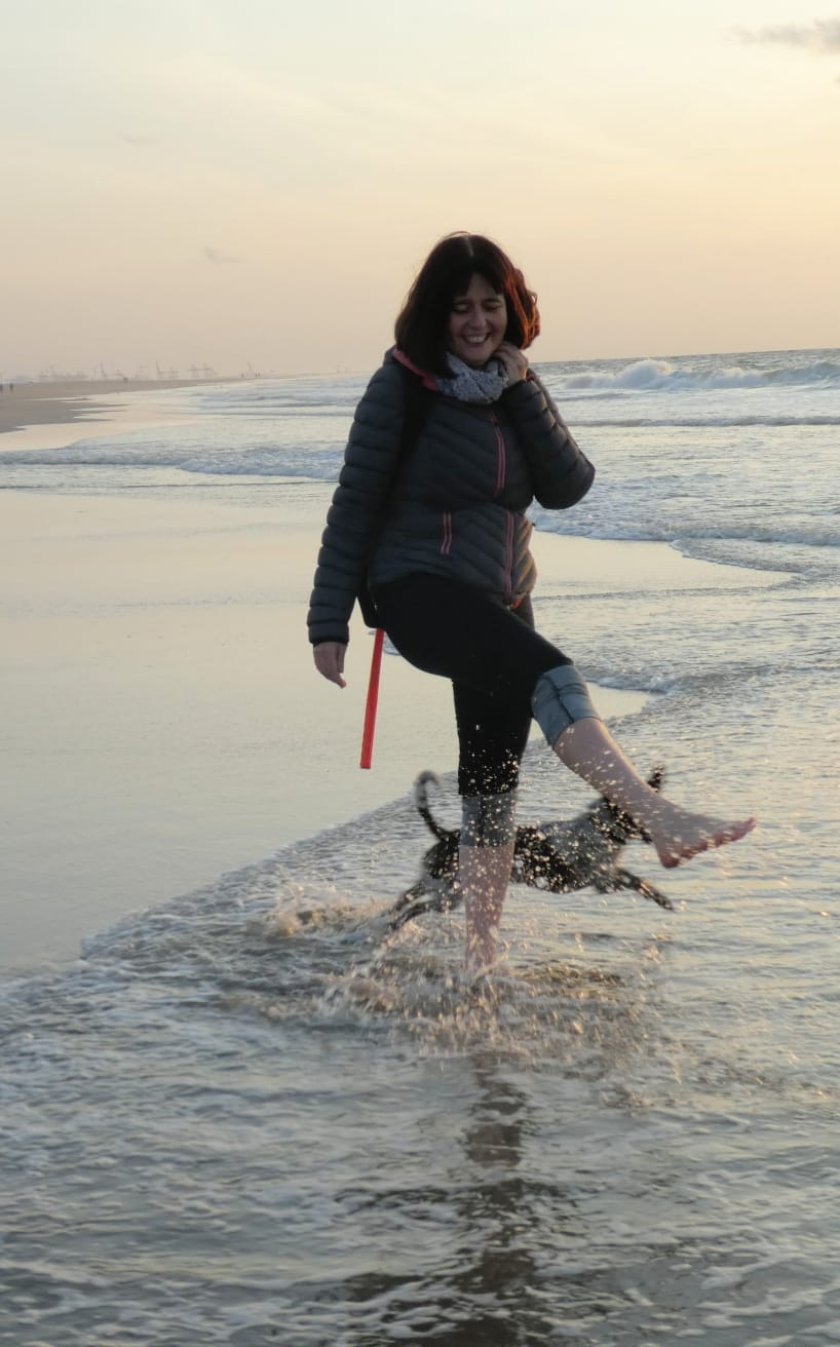
“When local residents object against wind turbines on land, the suggestion is often to place them out at sea,” says Bea Deetman, senior fisheries researcher at Wageningen Economic Research, a partner institute which Wageningen Marine Research regularly collaborates with. “The idea being that no one will be bothered by them out there. But that’s not the case. Placing them out at sea affects everything that lives and happens there, including the fishers who are in effect marine hunters. They follow the fish, but fish don’t stay within defined areas. If they swim into a wind farm, fishers can’t just follow them.” The fishing industry is already being expected to make substantial changes, Deetman explains.
“The fishers have become a bit worn down at this point. Besides wind farms, they have to deal with changing catch quotas, buy-out schemes, the consequences of Brexit, nitrogen rules, and the ban on pulse fishing. Stretches of sea are also being set aside as nature reserves, where fishing is banned.”
Indirect, unanticipated consequences
The ecological impact of fishing is easy to imagine, but the construction of wind farms also has all kinds of consequences for marine life. “The wind turbines pose a potential danger to sea birds and to bats and birds migrating over the sea,” says Josien Steenbergen. “It’s not just because they can get hit by the blades, but also because they can be affected by issues such as barotrauma, caused by differences in air pressure. There’s also already evidence that northern gannets avoid wind farms, so there’s a shift in the areas in which sea birds can forage.”
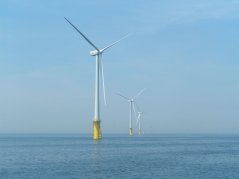
There are also other indirect and often unanticipated consequences. “Wind farms are built on pedestals, and such a hard structure in a sandy environment can create sub-ecosystems with shellfish establishing themselves there,” says Steenbergen. “Power cables on the seabed create an electromagnetic field, potentially disrupting the electroreceptors of sharks and rays. Wind farms also affect the hydrodynamics of the area, leading to changes in sea currents and sediment formation. Harvesting the wind has consequences for the waves.”
Unique data set
These clashing interests are further complicated by the international context. Nine countries border the North Sea, and they all have their own fishers, energy ambitions and nature conservation plans. “There’s not much point in setting aside an area for nature if Germany or the UK have planned a wind farm right next to it,” says Steenbergen. Climate change is also leading to warmer seawater with higher acidity, which has all kinds of ecological effects: some fish species migrate away, new species gravitate to the North Sea, spawning seasons change, shellfish are compromised, and the composition of zooplankton changes.
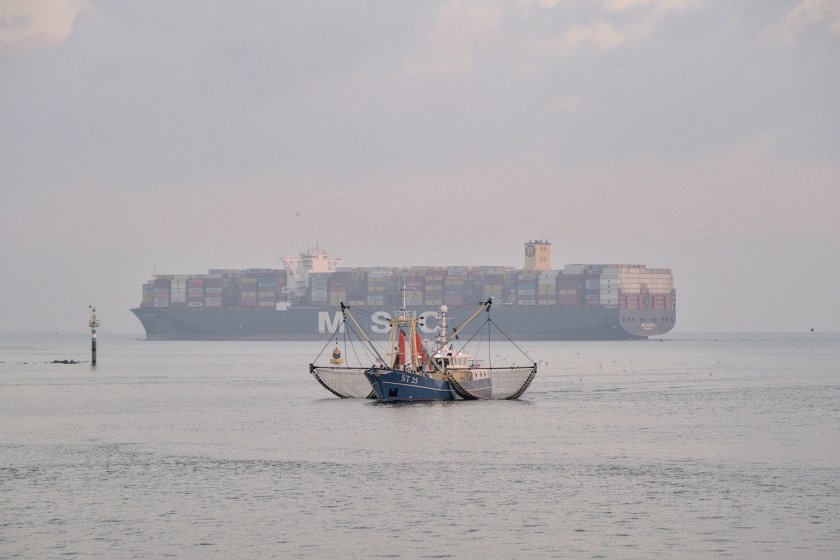
While it’s up to politicians and stakeholders to weigh up competing interests in the food transition, energy transition and nature transition, Wageningen Marine Research is tasked with clarifying the ecological impact of plans, initiatives and projects. Wageningen Economic Research studies the socio-economic consequences. Examples of joint research conducted by the two institutes include a quantitative assessment of measures applied to the fishing industry, and an analysis of opportunities for oyster farming and seaweed cultivation between wind turbines. Some Wageningen Marine Research studies on fish species, shrimp, mussel beds and marine mammals have been running since the 1970s, providing a unique data set on long-term patterns.
“We would never say that something shouldn’t be allowed,” says Steenbergen. “We wouldn’t say that offshore wind farms are a bad idea. We just show the effects they have on northern gannets. We provide the data, we make a recommendation, and then it’s up to the policy makers to decide. That's the difference between an independent research institute and a nature conservation organisation.”
Herring Festivals
“As researchers, the important thing for us is to show the full range of social consequences,” says Bea Deetman. “Some fishers have taken advantage of the decommissioning scheme and have quit. The impact of this is often larger than expected. If there’s less fishing going on, that has an impact ashore: the fish auction disappears, and lots of jobs go with it. Fishing is also an important part of our cultural identity. If celebrations like the Herring Festival no longer take place, it means we’re losing our rituals. These impacts stretch beyond ecological and economic research. It’s something that people all over Europe are increasingly paying attention to.”

Still, there are times when Wageningen Marine Research can’t avoid adopting a position in that political battle of interests. “Sometimes a client really needs a result very quickly, even though you really need several years of research before you can make a pronouncement about there being certain effects on certain species. We do find ourselves caught up in that tension.”
Overall, is it fair to say that with all these economic interests, the natural environment of the North Sea is most likely to get overlooked? “There is genuine concern for the ecological issues, especially when legally protected species are involved,” says Steenbergen. “But when people talk about maintaining the ecological strength of the North Sea, I sometimes wonder what exactly we’re talking about. The ecology of the North Sea has actually been compromised and disrupted for decades already.”
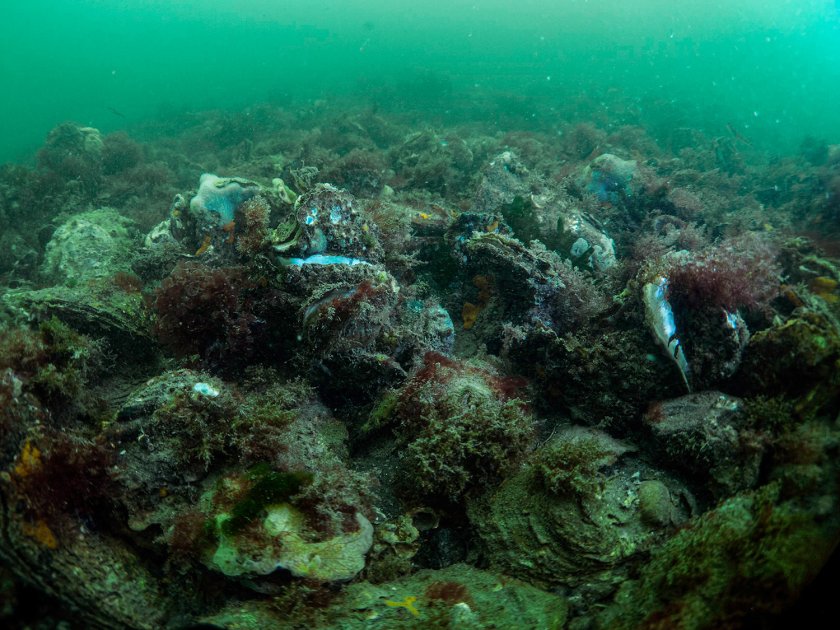
Rights for the North Sea?
The phrase ‘North Sea transition’ suggests that the sea as a whole has to change, from something it is today to something else. But within the nature conservation community there is a growing call to recognise that the sea itself has an inherent right to exist. Perhaps the North Sea should even be given its own rights.
“These discussions are basically about the intrinsic value of the North Sea,” says Bea Deetman. “Our studies provide valuable insights for those discussions, but no ready-made answers. It’s good, though, for us to recognise how much the North Sea is part of our identity. The North Sea has fed us for thousands of years, we’ve fought wars on it, and the seabed is littered with our shipwrecks. Maybe we don’t think about that as much as we should. The North Sea is so much more than a murky body of water that’s always just a bit too cold for a nice swim.”
It’s good to realise how much the North Sea is part of our identity.
“I do think we’re becoming more and more aware of how important the North Sea is to us, and not just in economic terms,” says Josien Steenbergen. “September will see the release of North Sea - Nature Untamed, a film and TV series about life in our North Sea. That’s quite significant. And our role is really to provide knowledge that shows the importance and beauty of the North Sea, in neutral language befitting a research institution.”